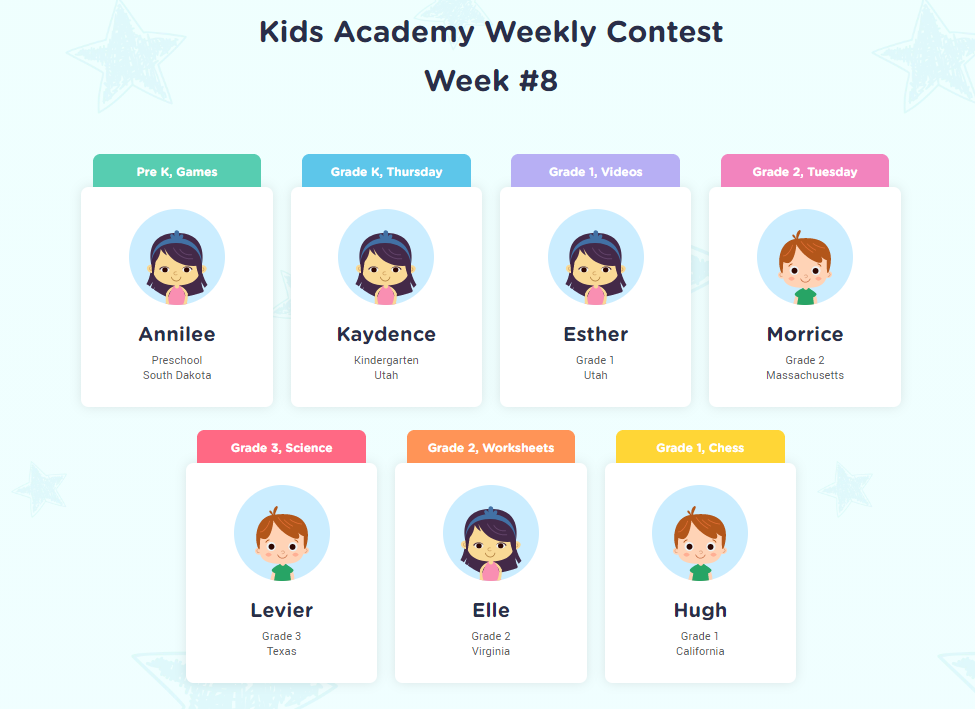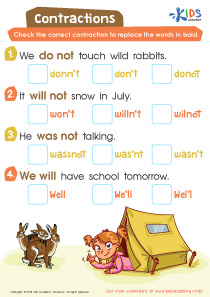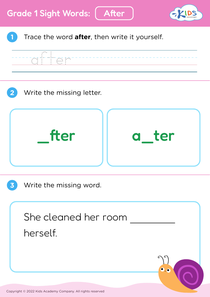Alphabet worksheets activities for Grade 1
2 filtered results
-
From - To
Title: Grade 1 Alphabet Worksheets & Activities - Spark Learning!
Unlock the world of letters with our vibrant selection of Alphabet Worksheets Activities for Grade 1! Designed specifically for young learners, these engaging and colorful worksheets are your child’s perfect companion in mastering the alphabet. From tracing and writing to recognizing and pronouncing each letter, our activities cover every aspect to ensure a comprehensive understanding. Ideal for homeschooling or extra practice, these worksheets are crafted to make learning fun and interactive. Dive into our alphabet adventure today and watch your Grade 1 superstar develop a solid foundation in literacy skills!


Long and Short Vowel Sentences: Assessment Worksheet


Let's Check Long Vowels: Assessment Worksheet
Alphabet worksheets activities for Grade 1 are an invaluable resource for young learners at the onset of their academic journey. The introduction to the alphabet sets the foundation for literacy, enabling children to progress from recognizing letters to eventually reading and writing fluently. These activities are crafted specifically for first graders, aligning perfectly with their developmental stage and learning capabilities.
The importance of Alphabet worksheets activities for Grade 1 cannot be overstated. Firstly, they provide a structured approach to learning the alphabet, ensuring that children are introduced to each letter in an engaging and memorable manner. Through various exercises such as tracing, matching, and coloring, children not only learn to identify each letter but also develop fine motor skills, which are crucial for handwriting.
Moreover, these worksheets are designed to cater to different learning styles. Whether a child learns best through visual stimulation, hands-on activities, or auditory cues, alphabet worksheets offer a variety of approaches to suit individual needs. This versatility enhances the learning experience, making it more enjoyable and effective for every student.
Engagement is another key benefit of Alphabet worksheets activities for Grade 1. By incorporating fun and interactive elements, these worksheets captivate young minds, fostering a love for learning from an early age. When children enjoy the process, they are more likely to participate actively, retain information better, and develop a positive attitude toward education.
Furthermore, these activities serve as a valuable tool for assessment. Teachers and parents can easily monitor progress, identify areas of strength and those that may need additional support. This early intervention is critical in ensuring that no child falls behind, providing them with the confidence and skills needed to succeed in future academic endeavors.
In conclusion, Alphabet worksheets activities for Grade 1 are a cornerstone of early education, offering a comprehensive, engaging, and adaptable approach to learning the alphabet. By laying a strong foundation, they pave the way for literacy development, setting children on a path to academic success and lifelong learning.

 Assign to the classroom
Assign to the classroom
.jpg)


.jpg)








